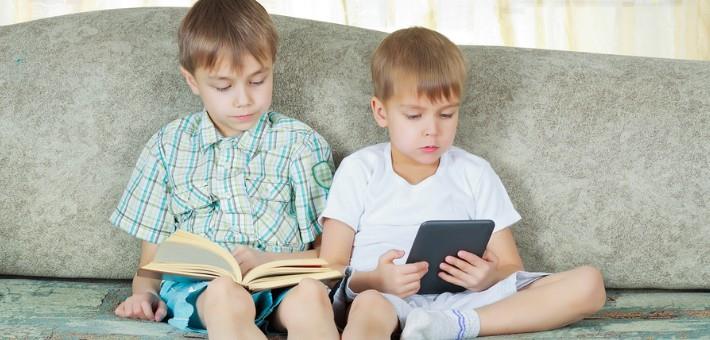
Preschoolers With Learning Troubles: How Can We Help?
Learning problems frequently start during preschool. The faster the response of experts, the better learning problems can be overcome. A Read Writ article shows a successful intervention Three researchers from the Bar-Ilan University in Israel investigated the opportunities for an e-book to stimulate learning skills, such as verbal ability and the ability in recognizing and manipulating sounds. What proved to be the case? The e-book can teach children new words and can also improve their phonetic awareness.
Take aways
- Adult reading (whether it is a computer programmed voice on an e-book or a real person reading) stimulates the development of young children with learning disabilities.
- However, e-books stimulate children’s development more than adult reading from a printed book.
- Therefore, e-books are a promising complement of adult reading (by parents or teachers) and can be used in classrooms.
- E-books are successful in learning new words to children with learning problems, and also a powerful tool to teach them to recognize and manipulate word sounds.
Study information
The question?
Can e-books help preschoolers with learning disabilities?
Who?
110 preschoolers between the age of 5 and 7 years old. 62,7% were boys. All children were identified as being at risk for learning disabilities.
Where?
Israël
How?
Children were assigned to one of three groups. The first group of children had a story read from an e-book (Title of e-book: ”Confused Yuval”, by Miriam Roth). The story in the e-book had large colored drawings, and was scanned from the original book. Children could choose if they’d like to just read the story, read the story while using a dictionary or read the story and play. Whatever the children chose, in every mode there was an audio record of an adult reading the story and also music and film effects.
The second group of children heard the exact same story, only in this case the story was read by an adult. The third group of children heard no story at all, and followed the regular school program.
Afterwards, children were tested on their vocabulary, their ability to recognize and manipulate word sounds and their knowledge about reading and books.
Facts and findings
- Children who were exposed to the e-book had learned more new words and scored higher on recognizing and manipulating word sounds than children in the other two groups.
- Both the children who were exposed to the e-book and children who were exposed to the printed version of the book, had more knowledge about books and reading (such as page, line, writing, drawing, knowledge of book , text handling and the direction in which reading proceeds) than children who followed the regular school program.
- According to the researchers, an explanation for the success of the e-book could be that an e-book has more interaction and multimedia opportunities than a printed book, which makes an e-book more unique and therefore easier to remember for children.